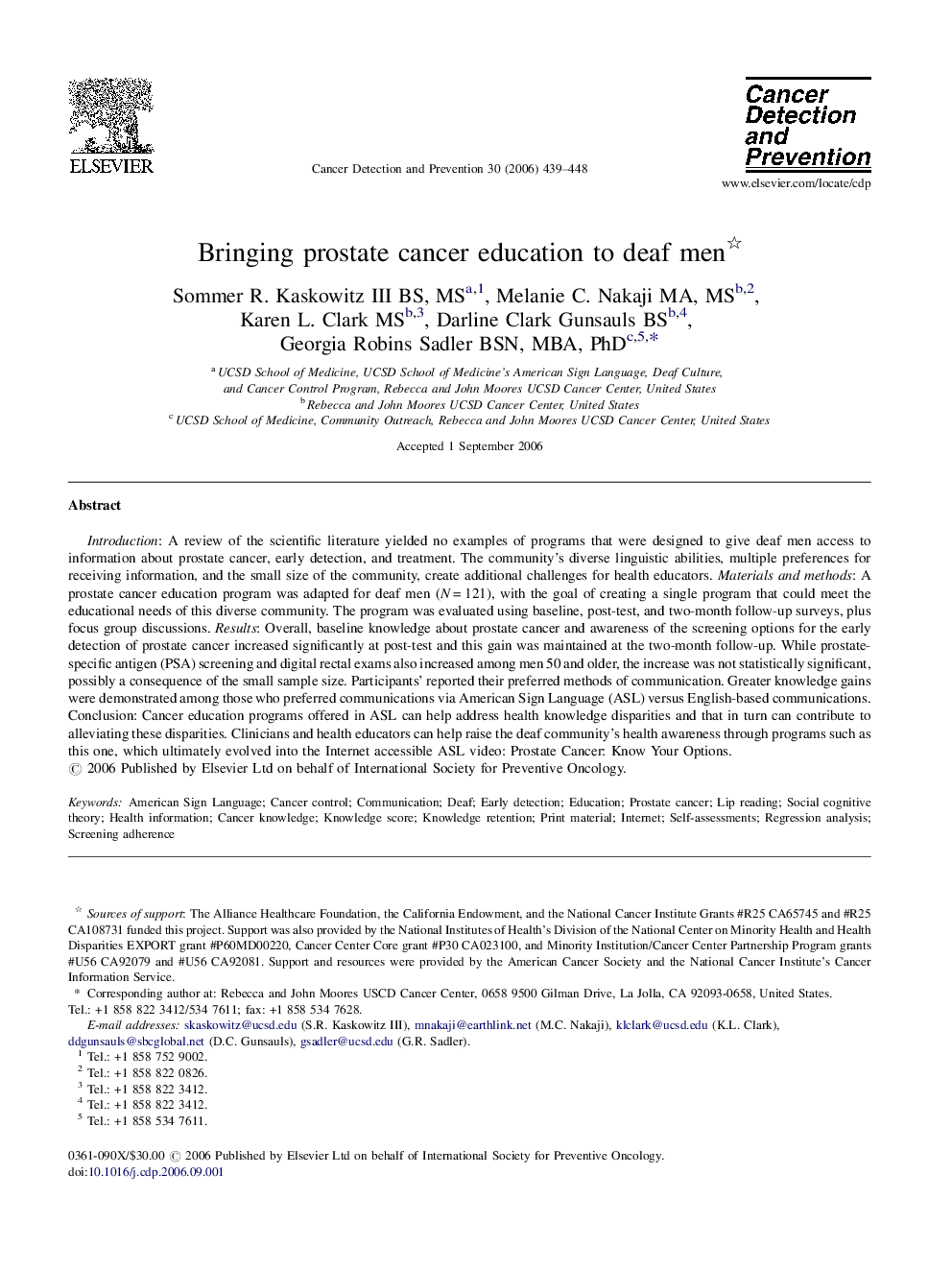| Article ID | Journal | Published Year | Pages | File Type |
|---|---|---|---|---|
| 2108737 | Cancer Detection and Prevention | 2006 | 10 Pages |
Introduction: A review of the scientific literature yielded no examples of programs that were designed to give deaf men access to information about prostate cancer, early detection, and treatment. The community's diverse linguistic abilities, multiple preferences for receiving information, and the small size of the community, create additional challenges for health educators. Materials and methods: A prostate cancer education program was adapted for deaf men (N = 121), with the goal of creating a single program that could meet the educational needs of this diverse community. The program was evaluated using baseline, post-test, and two-month follow-up surveys, plus focus group discussions. Results: Overall, baseline knowledge about prostate cancer and awareness of the screening options for the early detection of prostate cancer increased significantly at post-test and this gain was maintained at the two-month follow-up. While prostate-specific antigen (PSA) screening and digital rectal exams also increased among men 50 and older, the increase was not statistically significant, possibly a consequence of the small sample size. Participants’ reported their preferred methods of communication. Greater knowledge gains were demonstrated among those who preferred communications via American Sign Language (ASL) versus English-based communications. Conclusion: Cancer education programs offered in ASL can help address health knowledge disparities and that in turn can contribute to alleviating these disparities. Clinicians and health educators can help raise the deaf community's health awareness through programs such as this one, which ultimately evolved into the Internet accessible ASL video: Prostate Cancer: Know Your Options.
